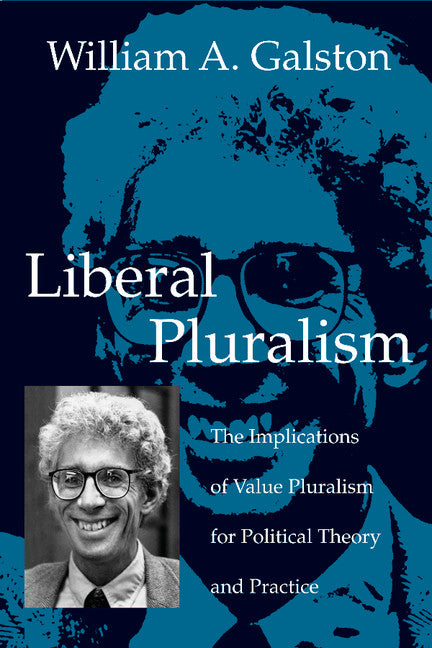Freshly Printed - allow 8 days lead
Couldn't load pickup availability
Liberal Pluralism
The Implications of Value Pluralism for Political Theory and Practice
No contemporary actor has William Galston's status as both a political philosopher and political actor. This book was first published in 2002.
William A. Galston (Author)
9780521012492, Cambridge University Press
Paperback, published 6 May 2002
152 pages
22.9 x 15.1 x 1.4 cm, 0.233 kg
"Liberal Pluralism would work well in a course exploring political theory beyond current partisan politics. Galston's classical liberalism, tempered by a rejection of the radical individualism now endemic in much American political discourse, is a fine contribution to the field." - Journal of Church and State, Richard Heyduck, First United Methodist Church
William Galston is a distinguished political philosopher whose work is informed by the experience of having also served from 1993–5 as President Clinton's Deputy Assistant for Domestic Policy. He is thus able to speak with an authority unique amongst political theorists about the implications of advancing certain moral and political values in practice. The foundational argument of this 2002 book is that liberalism is compatible with the value pluralism first espoused by Isaiah Berlin. William Galston defends a version of value pluralism - liberal pluralism - and argues, against the contentions of John Gray and others, that it undergirds a kind of liberal politics that gives weight to the ability of individuals and groups to live their lives in accordance with their deepest beliefs about what gives meaning and purpose to life.
Part I. Introduction: 1. Introduction
Part II. From Value Pluralism to Liberal Pluralist Theory: 2. Two concepts of Liberalism
3. Three sources of liberal pluralism
4. Liberal pluralist theory: comprehensive, not political
5. From value pluralism to liberal pluralist politics
6. Value pluralism and political community
Part III. The Practice of Liberal Pluralism: 7. Democracy and value pluralism
8. Parents, government, and children: authority over education in the liberal pluralist state
9. The public framework of the liberal pluralist state
10. Liberal pluralism and civic goods.
Subject Areas: Law [L], Political science & theory [JPA], Philosophy [HP]


